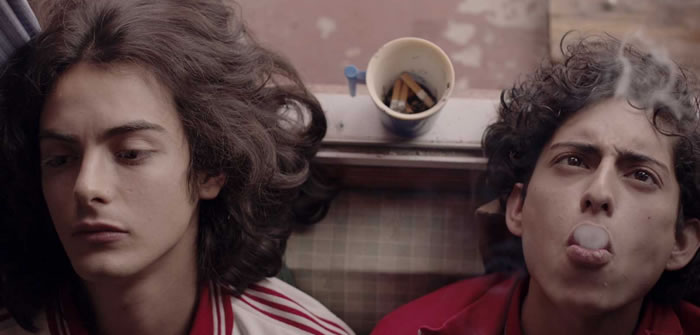This is not Berlin happens in 1986, Mexico City. As the country prepares for the World Cup, a thriving underground of New Wave music and avant-garde art bubbles up. Seventeen-year-old Carlos feels like an outsider, but when his engineering know-how comes to the rescue of a synth-heavy music group in need of a keyboard technician, he’s ushered into a world much wilder than high school rivalries and his sheltered home life. Hitting the clubs puts Carlos closer to Rita, his older crush, who’s the sister of his best friend Gera, but as the two young men navigate this vibrant and revolutionary scene, it’s Gera who blossoms both as an artist and as someone discovering his sexuality. Fueled by love and anger, this pack of rabble-rousing young artists inspires each other to greater heights of creativity while also opening up to their true selves.
To learn more about This is not Berlin, we interviewed the director of the film, Hari Sama on camers:
Featuring a superb ensemble (that includes Oscar nominee Marina de Tavira of Roma) and pulsing with the energy of the art and experimentation of the 1980s — even in the shadow of the HIV epidemic, and even in places that weren’t Berlin — this regulatory and romantic coming-of-age tale was a hit at the Sundance and Tribeca film festivals. Whether you were around in 1986 or are nostalgic for an earlier era’s efforts to sail against the current and create its own rowdy, revolutionary voice, This Is Not Berlin captures every generation’s deep need to stand apart and smash down the old ways to create something new.
THIS IS NOT BERLIN was directed by Hari Sama and co-written with Rodrigo Ordóñez and Max Zunino.
The film was produced by Ale García, Antonio Urdapilleta, Verónica Valadez P., and Hari Sama.

